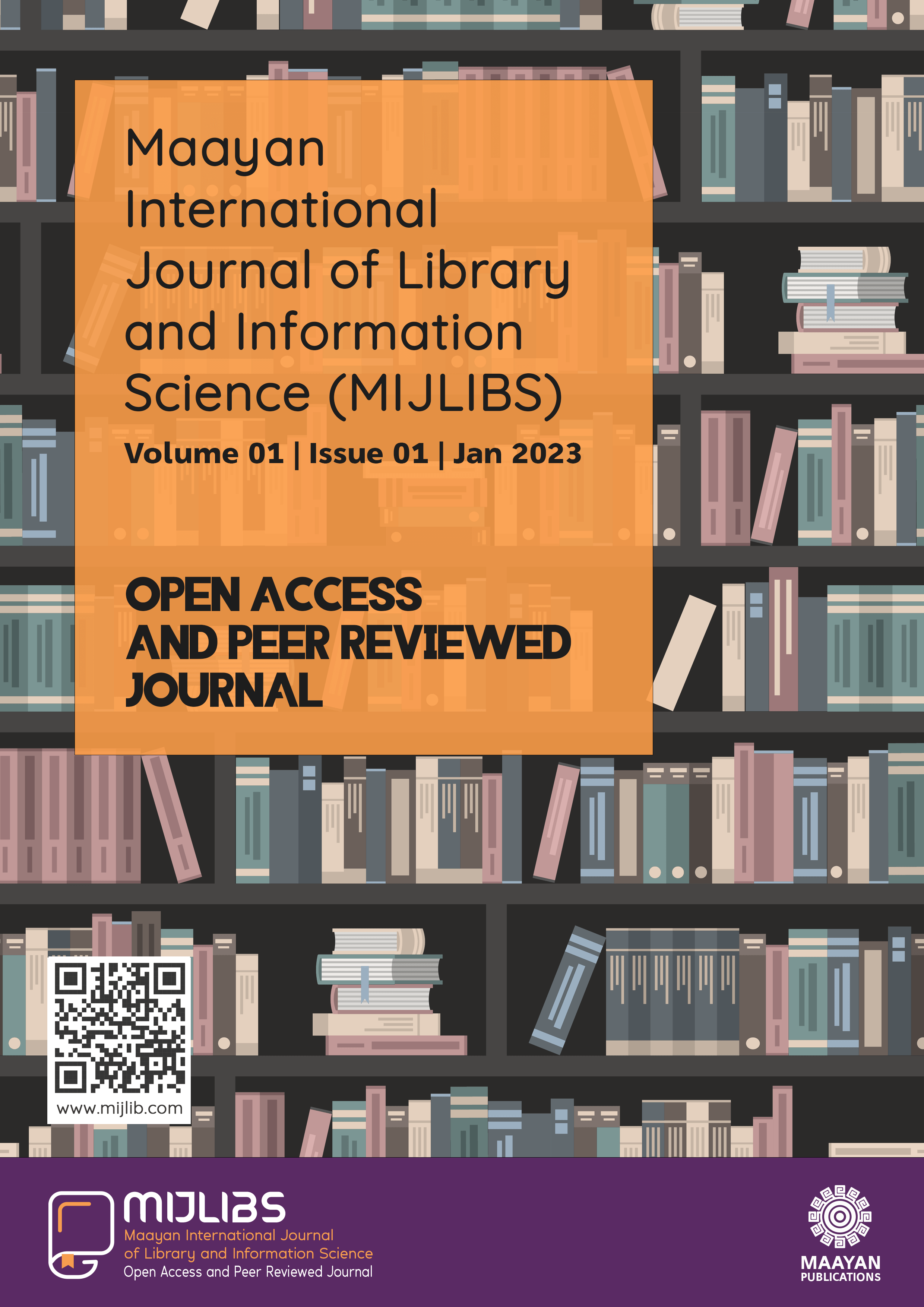CURRENT ISSUE

VOL 01 ISSUE 01 – JAN 2023
The Maayan International Journal of Library and Information Science (MIJLIBS) regards plagiarism as a very serious offense. It is an illegal form of copying. Plagiarism is defined as the unacknowledged use of the work of others as if this were your own original work. Please be aware that we check all submitted manuscripts for plagiarism. We use Turnitin & Plagiarism CheckerX, which are the leading plagiarism-detection tool, to check for similarity to previously published documents. All manuscripts containing plagiarism, including self-plagiarism, and dishonesty are rejected. Manuscripts found to be plagiarized during the initial stages of review are out-rightly rejected and not considered for publication in the journal. The plagiarism rate of the accepted manuscript must be not exceeded the rate of 5%.
TYPES OF PLAGIARISM
The following types of plagiarism are considered:
Full Plagiarism:
Previously published content without any changes to the text, idea and grammar is considered full plagiarism. It involves presenting exact text from a source as own.
Partial Plagiarism:
If the content is a conglomeration of multiple different sources, where the author has extensively rephrased text, then it is known as partial plagiarism.
Self-Plagiarism:
When an author reuses complete or portions of their pre-published research, then it is known as self-plagiarism. Complete self-plagiarism is a case when an author republishes their own previously published work in a new journal.
EXAMPLES OF PLAGIARISM:
CURRENT ISSUE

VOL 01 ISSUE 01 – JAN 2023
JOURNAL HIGHLIGHTS
Nature of Journal: Electronic
Subject Category: Library Science, Information Science, Information Resources Management, Information Retrieval, Knowledge Management, Library Administration, Research Methods, Instructional technologies and other related fields
Issue Frequency: Bi-Annual (2 issues Annually)
Special Issues: Summer Issue (Apr-May), Winter Issue (Oct-Nov)
Language Details: English
Article Processing Charge (APC): Free
Published by: Maayan Publications
Publication Guidelines: Follow COPE Guidelines
Open Access: Free Accessible for Readers
Review Process: Double Blind Peer Review
Time from Submission to Publication: 60 days, based on revision cycles
Email: editor@mijlib.com
JOIN US MIJLIBS!
Being on the editorial board or a reviewer of a journal is truly productive, pleasant and in fact prestigious which helps in add-on to the scientific world through the ways and guidelines given by experts in the relevant fields. Though it is time consuming and often goes unobserved, there are some important rewards that make the editorial board members/reviewers worthwhile.
© 2023, Maayan International Journal of Library and Information Science (MIJLIBS). Published by Maayan Publications.
